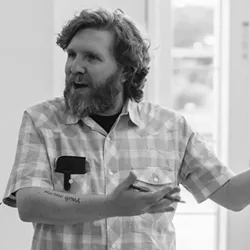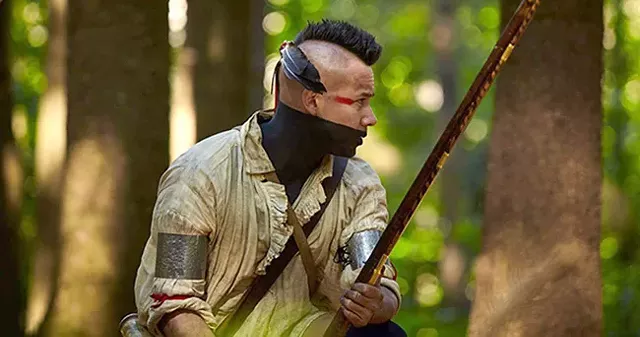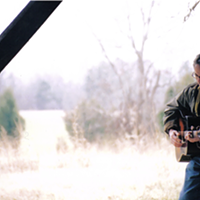Most people enjoy going to the movies to see the latest superhero cash-grabbing crashdown, or maybe a heartstrings-pulling flick featuring Emma Stone's big eyes. There's a certain kind of film-goer, though, who wants — no, needs — to see Metropolis or Ran just as their auteurs intended: surrounded by fellow cinephiles in a dark room on a big screen. For those souls, the domino-like collapse of brick-and-mortar indie movie theaters in Charlotte may feel like a devastating loss.
"There are too many really great films, especially foreign, independent and arthouse cinema, that just are not exhibited in Charlotte," Jay Morong says. He should know. He's the program director for the Charlotte Film Society, the nonprofit organization that's brought films like the restored Texas Chainsaw Massacre and Agnieszka Smoczynska's The Lure to Charlotte movie buffs in recent years.
Morong, 45, whose day job is senior lecturer in theater and film at UNC Charlotte, has watched the number of movie theaters dwindle to nearly nothing over the past few years. That's why he takes his volunteer job at the Film Society so seriously.
"With the recent closing of Park Terrace and most of the non-corporate or non-chain cinemas going away, the Charlotte Film Society is committed more than ever to trying to bring even more films to Charlotte than we have in years past," Morong says.
Following through on that commitment this week, the Charlotte Film Society's Back Alley Film Series is screening Mohawk, the new film by writer director Ted Geoghegan, whose previous horror film, We Are Still Here, was screeened by the Back Alley in 2015. Mohawk will be showing at C3 Lab on March 29, at 7:30 p.m. Tickets are $10, or $5 for Film Society members.
The Film Society's program director needed no convincing when he learned that a new Geoghegan flick was coming down the pipe. "I am a really big fan of Ted," Morong says. "When I heard he had a new film, I immediately contacted the distributor to get a screener and see when the film was coming out. Once I screened the film, booking it was a no-brainer."
Set in the early 1800s, Mohawk, a survival and revenge tale, stars Canadian actress Kaniehtiio Horn (Journey to the Center of the Earth), and tells the story of a group of American soldiers who are chasing and tracking down a young Mohawk woman and her two lovers, a Mohawk tribesman and a former British soldier. Geoghegan weaves this seemingly straightforward scenario into a haunting commentary on the United States' bloody beginnings, and the harrowing stories that are not easy to recount.
Mohawk has the violence and intensity that's come to be expected from a Back Alley film, but there are very real observations at the film's heart that will reveal themselves to a dedicated audience.
"At heart, we [the volunteers who make up the Charlotte Film Society] are just a group of Charlotte-area cinephiles who love film and community and seek to bring those two things together," Morong says.
The non-profit Cinema group was founded in 1982 as all-volunteer organization with no paid board members, initially offering a subscription series that featured 10 to 12 foreign, classic and independent films. It then added its "Second Week" series, screening three to four films during the second week of each month. The Society's first home was Queen Park Theater, before moving, in 1988, to the Manor Theatre in Myers Park and later expanding to Regal Stonecrest Theater in Ballantyne.
Today, the Film Society offers three programs, the Saturday Night Cine Club, the Back Alley Film Series and the newest, Charlotte Film Lab. The Cine Club launched at Theatre Charlotte on Queens Road in 2009. It was a new initiative for the Society, bringing in guest speakers to talk about the movies being screened, and moderating discussions among the creators of film and audience. The program was a success, and the Film Society and Theatre Charlotte have continued the program.
The newer Charlotte Film Lab expands the Saturday Night Cine Club's mission to bring filmmakers and audiences together to discuss cinema. Its aim is to provide a viewing ground for innovative cinematic works, as well as an opportunity for intimate conversation with the creators of the films in a setting built around the screened works. Supporters of the Saturday Night Cine Club get the opportunity to speak with filmmakers and actors, and hear tales of productions that don't make the cut.
The Back Alley Film series, which launched in 2011 at Crown Point Stadium on Monroe Road, offers cinemaphiles a chance to see a wide array of truly independent films, often shown by directors who travel with their films in tow, and share their stories one crowd at a time. Of course, as any good screenwriter will tell you, all good stories inevitably run into problems, and the Film Society's edgy series wasn't spared the rod.
Brad Ritter, the Charlotte Film Society's current president (and the manager of the Manor) remembers when gentrification came knocking on the Back Alley's door. "Crown Point, who we'd had a great relationship with, had sold out to Cinemark, one of the larger corporate chains," Ritter, a CFS board member since 1994, says. "Cinemark quickly booted us out."
Apparently Cinemark, a multibillion-dollar conglomerate, had no room for an independent arthouse program in its theaters. But the Charlotte Film Society saw a light at the end of the tunnel — C3 Lab, another independent arts group in the Queen City. It is an artist collective and creative rental space dedicated to fighting the cultural drain that Charlotte's gentrification has brought. Quietly tucked into an industrial area of South End, C3 heard about the Film Society's dilemma, and took the initiative to extend an invitation to the embattled group.
"We knew of the Film Society, and once we created the space, we felt that having films here would be a great idea," says Glen Nocik, one of C3 Lab's owners. The 46-year-old artist and entrepeneur says it made perfect sense to him for C3 Lab to collaborate with the Film Society. "The Back Alley Film Series already existed, so we reached out to them to see if there was a partnership we could arrive at," Nocik says. "We've been showing funky films here since 2016, and it's been a great arrangement."
Ritter says he and Nocik have been working hard to nurture the Back Alley series, and independent cinema in general. "C3 Lab reached out to us out of the blue and have been great to work with," Ritter says.
Not that the Charlotte Film Society is the only game in town when it comes to bringing great cinema to the Queen City. The Charlotte Jewish Film Festival, launched in 2005, has become a major annual event. And the Carolina Film Community holds an annual film contest, Made In Carolinas, which has donated funds to help budding filmmakers.
And then there's the Charlotte Black Film Festival (running next month, from April 5-8) and the CineOdyssey Film Festival (coming in July), both of which bring the works of cutting-edge directors of color to Charlotte, as well as the Classic Black Cinema Series at the Harvey B. Gantt Center for African-American Arts + Culture.
Tre' McGriff, founder and director of CineOdyssey, applauds the Charlotte Film Society, "not only for their longevity, but also for being the springboard for the creation of other film organizations that serve niche, underserved and diverse audiences," he says. McGriff says he's looking forward to partnering with CFS on April 9 at the Sensoria Arts Festival for a screening of the documentary Quest.
The Charlotte Film Society's criteria for curating films is straightforward. "We have a small committee of folks who screen tons of films and then whittle that down to the films we screen," Morong says.
Morong, Ritter and the rest of the CFS volunteers commitment to bringing great cinema to the Queen City in the face of corporate culture and gentrification has produced dividends. Charlotte has had the opportunity to see edgy independent films like Obit, the 2016 documentary directed by Vanessa Gould, which screened at more than 40 major film festivals, including Tribeca, and Human Flow, the documentary directed by Chinese activist filmaker Ai Weiwei. Both films screeened to sold-out crowds, and Morong remains optimistic about getting more great films in Charlotte.
"With the recent closing of Park Terrace [in December 2017] and most of the non-corporate or non-chain cinemas in Charlotte going away, the Charlotte Film Society is committed more than ever to trying to bring even more films to Charlotte than we have in years past," Morong says.
The Film Society plans to continue its relationships with other organizations, like the Charlotte Film Festival, the Reel Out Film Festival, CPCC's Sensoria Festival and the CineOdyssey Film Festival to program sponsored screenings at their events that will help bring even more films to Charlotte cinemaphiles.
In April, the Saturday Night Cine Club will bring In The Fade, directed by the Turkish director Fatih Akin, and Back Alley will bring Pyewacket, directed by Adam MacDonald.
Bringing people and cinema culture together in the soothing dark of American movie houses remains the Charlotte Film Society's prime directive. "Our core mission is to bring films to Charlotte that have not, or will not, screen at the local theaters," Morong says, "So we try to pick the best ones — the ones we think our audience will really enjoy — and give our people an opportunity to see them in a theatrical setting."
Beats the limited choices on Netflix or Amazon on even the largest of the big-screen home TVs.
Speaking of...
-
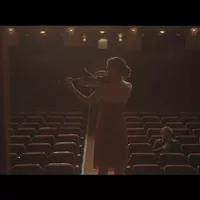
Charlotte Film Festival Features Distinct and Different Voices
Sep 19, 2018 -
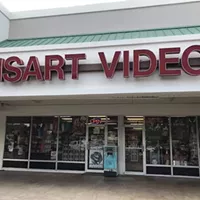
VisArt Video Focuses on the Future
Sep 12, 2018 -

Activist Art Show Strikes Notes of Defiance and Hope
May 2, 2018 - More »
Latest in Feature
More by Grey Revell
Calendar
-
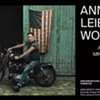
ANNIE LEIBOVITZ / WORK @ Mint Museum Uptown at Levine Center for the Arts
-

Trap & Paint + Music Bingo @ Blush CLT
-

Trap & Paint (Hookah Edition) @ Blush CLT
-

BookTok Sensation RC Luna Comes to Charlotte – Author Signing Event @ The Trope Bookshop
- Sat., Aug. 30, 11 a.m.-1 p.m.
-

R&B Sip & Paint + Comedy Show @ Blush CLT

